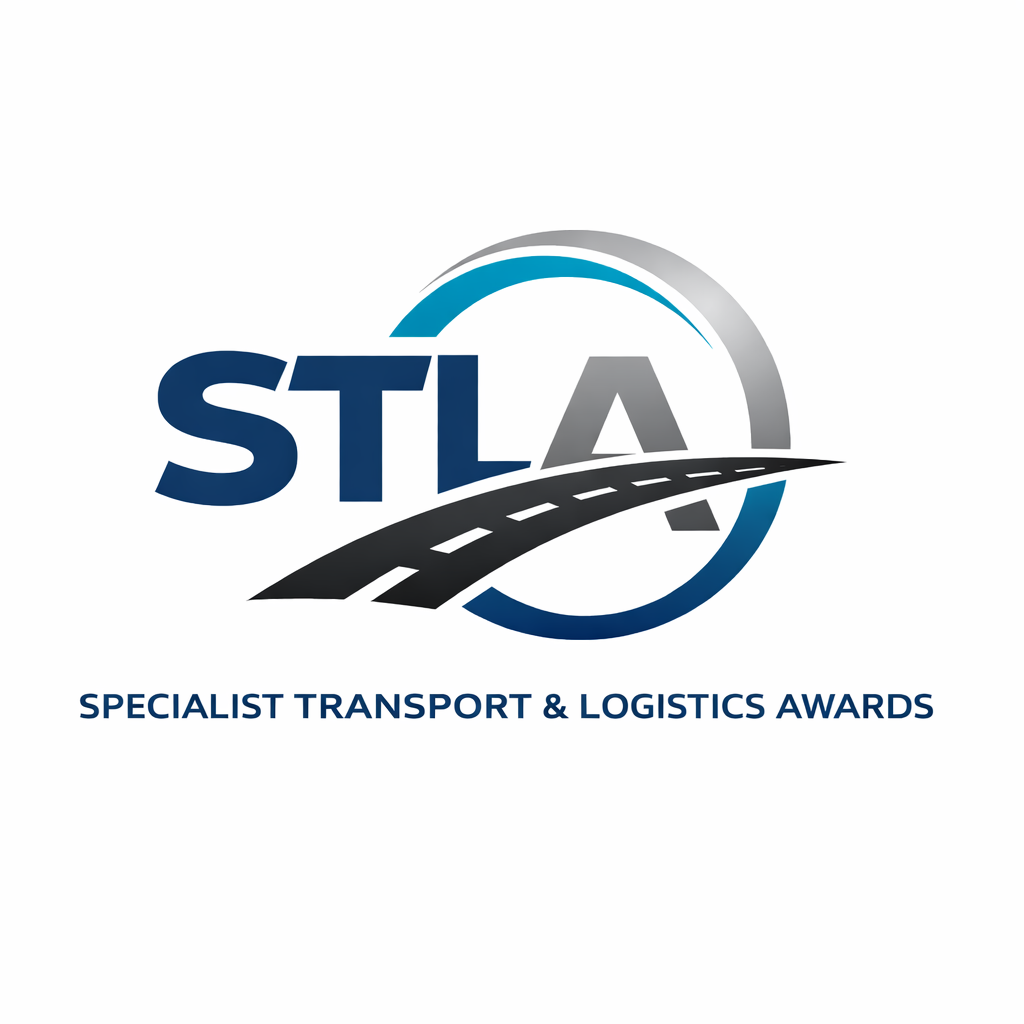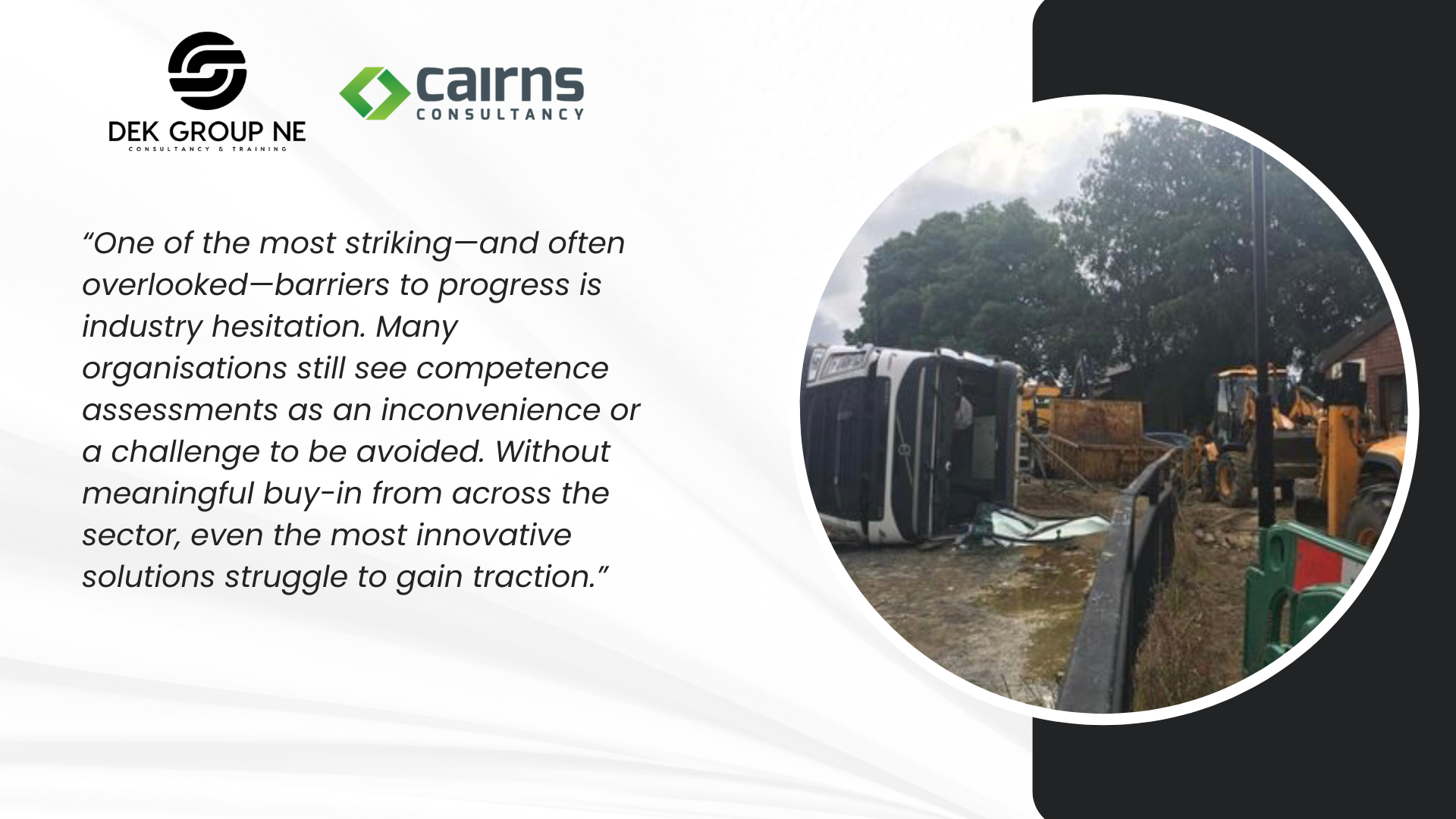DEK GROUP CONTINUE SURGE TO ELEVATE INDUSTRY STANDARDS ACROSS ROAD TRANSPORT AND LOGISTICS WITH THE LAUNCH OF SPECIALIST TRANSPORT & LOGISTICS AWARDS
New awarding organisation builds on EMPI Awards’ legacy to deliver practical, industry–led qualifications that cut risk, improve productivity, and go beyond basic compliance.
DEK Group NE Ltd, a leading provider of specialist transport consultancy, training, and expert witness services, has acquired Philip Brain Associates/EMPI Awards and launched Specialist Transport & Logistics Awards (STL Awards), a new awarding organisation focused on raising competence and safety standards across road transport, haulage, freight, and logistics.
This move evolves EMPI Awards into STL Awards, creating a single, focused home for specialist qualifications while maintaining a strong commitment to concrete and associated industries.
In a sector facing acute skills shortages, growing regulatory pressure, and heightened expectations around sustainability and on–road safety, many existing qualifications struggle to meet the practical demands of specialist operations. This can leave operators with gaps in real–world competence that contribute to inefficiencies, incidents, and non–compliance.
STL Awards has been created to close these gaps by offering tailored, industry–led qualifications that reflect the realities of front–line work. Its programmes will support operators, drivers, and managers to evidence competence, reduce risk, and improve performance in areas such as construction logistics, where integrated standards can reduce vehicle rollovers and enhance community safety.
Leading the launch is Dan Cowan, Founder and Director of DEK Group NE Ltd, whose team brings over 75 years of combined frontline and strategic experience in ready–mixed concrete, construction logistics, and mineral transport. DEK Group NE has earned a reputation as a trusted advisor to key industry bodies and stakeholders, including the British Concrete Transport Association.
DEK Group NE’s innovation track record includes the development of MixerSURE, the world’s first accredited training and assessment framework for concrete mixer drivers – now used by global operators in more than 12 countries and translated into multiple languages.
A vocational qualification (VQ) for mixer drivers, launched in 2023 with EMPI Awards and accredited by the Scottish Qualifications Authority (SQA), EMPI Awards, and previously DVSA, has helped transform how driver competence is validated and contributed to reductions in mixer rollovers and improved on–site safety. These qualifications have already expanded to cover tipper and skip loader drivers, with further specialist categories planned.
Philip Brain, Director and Shareholder of Philip Brain Associates Ltd / EMPI Awards, said:
“The acquisition of EMPI Awards by DEK Group NE Ltd represents a natural progression in the development of an awarding organisation established to strengthen the relationship between training, qualifications, and assessed competence within specialist transport operations. EMPI Awards has demonstrated that competence-based assessment can be applied effectively within regulated and high-risk operational environments. The transition to Specialist Transport & Logistics Awards provides an appropriate platform to extend this approach across wider areas of haulage and logistics, supported by strong sector leadership. Continuity for approved centres and learners remains a central priority throughout this transition.”
Under the STL Awards banner, DEK Group NE Ltd will build on this foundation with a broader suite of qualifications and assessments, including:
Advanced competence assessments for general haulage and freight logistics.
Specialist pathways for construction logistics and high–risk operations
Programs supporting sustainable fleet management and future skills needs.
Existing Specialist Vehicle Competence Assessments (SVCA) and MixerSURE programmes will transition seamlessly into STL Awards, ensuring continuity for approved centres and learners, while opening the door to wider market adoption
“Acquiring EMPI Awards and launching STL Awards is a pivotal step in our mission to lift industry standards in a way that reflects real–world operations,” said Dan Cowan, Founder and Director of DEK Group NE Ltd.
“Building on practical, impactful solutions like MixerSURE and TipperSURE, STL Awards is about more than qualifications; it is about a culture of excellence that saves lives, improves productivity, and prepares transport and logistics businesses for the challenges ahead by focusing on the specialist competence that drivers, hauliers, logistics providers, and construction firms actually need.”
As co–founder of the British Concrete Transport Association, DEK Group NE Ltd continues to help steer national and international initiatives, including the 2025 nationwide mixer maintenance workshops with the DVSA Enforcement Policy Team and presentations at the Police Commercial Vehicle Practitioners Board.
How to get involved
Organisations and training centres interested in becoming approved centres for STL Awards, or operators seeking to adopt STL Awards qualifications for their workforce, are invited to get in touch for an initial, no–obligation conversation.
For more information,
visit www.dekgroupne.com, or
email dan@dekgroupne.com
About DEK Group NE Ltd
DEK Group NE Ltd is a specialist consultancy, developing training, assessment, and advisory services to the transport, logistics, and construction sectors. The company provides practical solutions that enhance safety, compliance, and efficiency, drawing on decades of hands–on experience and collaboration with leading enforcement and industry bodies.
The British Concrete Transport Association (BCTA) is a not–for–profit member organisation dedicated to advancing safety, standards, and sustainability in the UK concrete transport sector. Bringing together industry experts, operators, and strategic partners; BCTA focuses on improving competence, compliance, and operational performance across the concrete supply chain.
Bridging the Gap
In the world of concrete, aggregates, minerals, and construction logistics, the role of professional drivers is often underestimated—despite being critical to site efficiency, road safety, and supply chain resilience.
However, with tighter regulations, evolving vehicle technologies, and rising expectations from clients and regulators alike, the industry is crying out for a more effective benchmark for on-road competence.
Now more than ever, as the industry evolves amid workforce challenges and environmental demands, we must place professional standards for drivers at the heart of sector progress.
General HGV qualifications are essential—but not sufficient—for vehicles operating on construction sites, quarries, and major infrastructure projects. The challenges faced by a mixer driver on a live construction project are fundamentally different from those of a long-distance haulier.
That changed with the development of the EMPI Awards Site Vehicle Competence Assessment (On-Road) (Mixers)—the world's first regulated, single-unit qualification designed specifically for drivers of on-road concrete mixer vehicles.
These single-unit qualifications, quickly followed by a vocational qualification for tipper drivers, were developed outside the traditional National Occupational Standards (NOS) framework. This demonstrates that qualifications can be agile, relevant, and sector-specific without the need for years-long consultation cycles.
Vocational qualifications built directly from operational insight, site risk profiles, and driver behaviours lived and observed in real-world working conditions.
National Occupational Standards (NOS) have historically underpinned vocational training in the UK.
However, when it comes to on-road driving—especially in industries like ours, where legal requirements, technology, and safety protocols are constantly evolving—NOS struggles to keep up.
The standards are often too slow to adapt to the realities on the ground, leaving both employers and drivers boxed in by outdated criteria.
That's why the industry needs a more responsive approach —one that evolves with the landscape and reflects real-world best practices.
Despite the innovation, one persistent challenge remains: the industry's reluctance to fully embrace competence-based assessments. For too long, specialist competence has been seen as an overhead, rather than a fundamental risk control.
Time to Reset the Standard?
The industry is crying out for a better benchmark for on-road competence. The role of professional drivers is often underestimated—despite being critical to site efficiency, road safety, and supply chain resilience.
If our sectors are to meet the demands of modern infrastructure, environmental compliance, and construction logistics, we need a new standard—one that's reactive, recognised, and relevant.
The next step in the evolutionary journey of developing driver competence solutions has seen DEK GROUP NE collaborating with Cairns Consultancy and Kate Cairns for over 12 months to bridge that gap, while respecting the financial and operational pressures facing businesses in the concrete, aggregates, and construction logistics supply chain.
Vehicles like concrete mixers and tippers operate in unpredictable, complex, and often public-facing environments. Without formalised, standardised assessment, we rely on patchwork training and assumed competence—often with serious consequences.
It's time to professionalise our driving workforce in a way that's both practical and affordable.
In our sectors, competence isn't just a nice-to-have—it's safety-critical.
We look forward to sharing more in the coming weeks.
The Case for an Independent Concrete Industry
In an industry that prides itself on the strength of its products, the weakest link in the UK's concrete supply chain might be its approach to safety.
Having recently completed an industry analysis for the British Concrete Transport Association (BCTA) on independent governance of the concrete supply chain, it's clear that a significant amount of work is needed in a short period.
The UK concrete industry is the foundation—literally—of nearly every infrastructure project, from housing developments to roadways. Yet, while the materials it delivers are essential to progress, its processes and standards don't meet the requirements of this unique industry, but are interconnected with the quarrying and minerals sectors.
The governance structure of the Ready-Mixed Concrete (RMX) sector is closely linked to the quarrying and minerals sectors, resulting in a complicated network of relationships that can undermine the concrete industry's independence.
This interconnection is evident in shared representative bodies, overlapping regulatory frameworks, and industry associations that serve multiple sectors at once.
Due to this complexity, decision-making processes frequently fail to adequately address the distinct challenges and needs of the RMX sector.
The cement sector's focus on sustainability and carbon reduction is a prime example of its interconnected nature. While not disputing the importance of these topics, the focus should be equally attributed to safety, compliance and standardising the concrete supply chain.
Introducing eMixers to the market has been transformational, but a greater understanding of the increased risks and protocols associated with electric vehicles is required.
Understanding the legal aspects of non-compliance with the requirements of the operators' licence doesn't need to be interpreted to suit the sector's needs.
The industry stands at a crossroads regarding safety and supply chain accountability. Once again, the role of the concrete delivery driver is in focus. The risks they face on-site, on roads, and during loading and unloading have never been greater, yet the industry lacks consistent safety protocols, training frameworks, and regulatory oversight.
While concrete is essential to the UK's infrastructure, the way it's delivered is overdue for scrutiny. From mixer rollovers to hazardous concrete wash water, the risks linked to the concrete delivery fleet—particularly for drivers and other road users—are now too significant to ignore.
In many other transport sectors, this kind of risk would trigger regulatory reform; yet, the evidence provided highlights how one major concrete supplier demonstrates just how far we are from consistent standards that would improve safety and prevent normalising risk. A worrying trend has emerged: mixer manufacturer safety and operating instructions are being ignored or overridden, often in the name of productivity or financial gain.
Further evidence and investigation reveal that some operators are not only comfortable with normalising risks associated with driving a fully loaded concrete mixer, but also encourage its use outside the limits of its safe operating protocols.
Mixer rollovers, unsecured loads, maintenance issues, non-compliance, and environmental hazards from wash water are not isolated risks—they're daily realities for drivers and the public alike. Add to that a culture of ignoring manufacturer safety guidance in pursuit of profit, and it won't bode well for those making the safety-critical decisions.
If other sectors can transform safety cultures, accountability, and enforceable standards, why can't the concrete industry?
Now is the time to transition from reactive fixes to proactive leadership—before regulators, insurers, or tragedy force us to do so.




